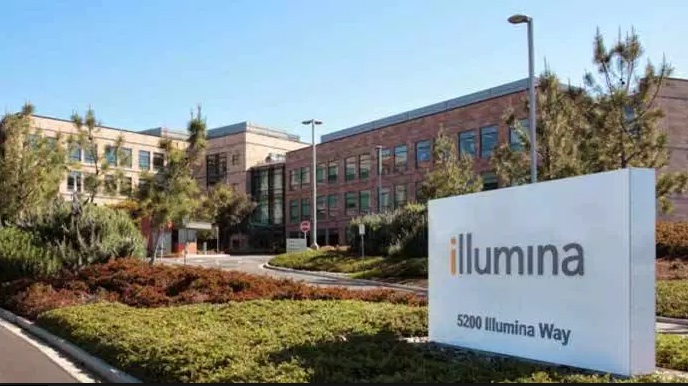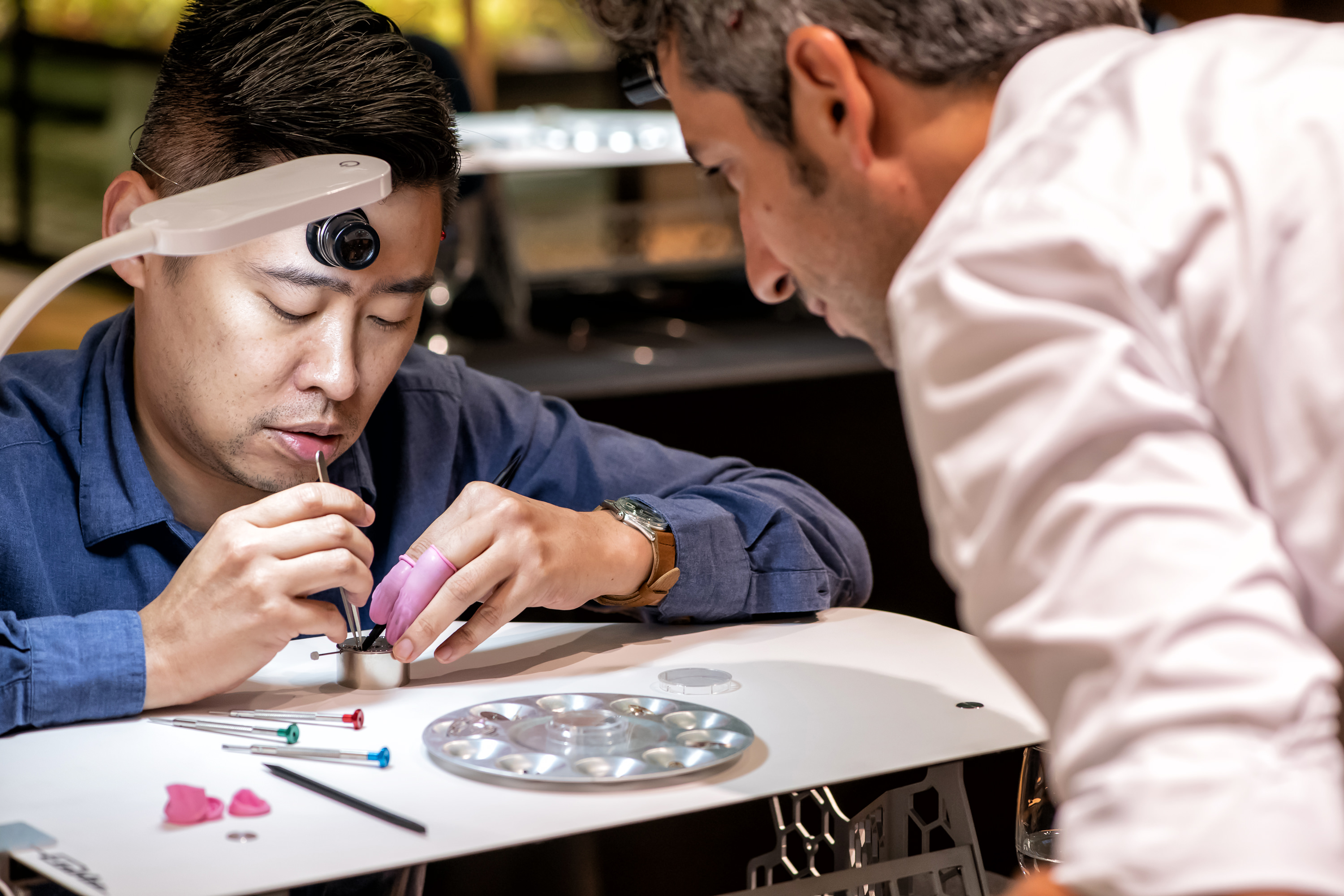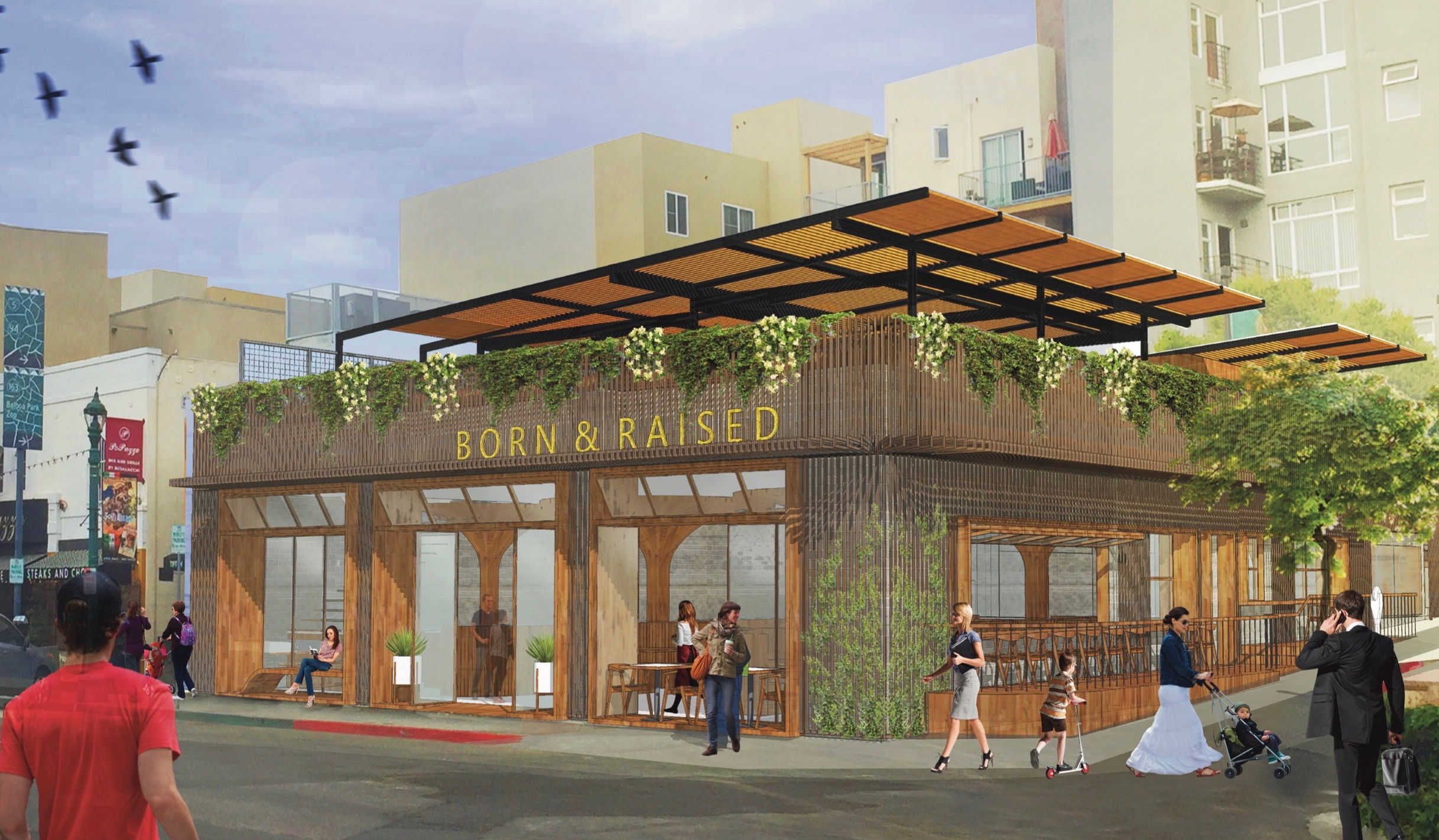Daily Business Report-Oct. 21, 2015
Illumina’s headquarters
Illumina Reports Double-Digit Growth,
But Disappoints Wall Street
Times of San Diego
San Diego-based Illumina on Tuesday reported 26 percent growth in profits on a 14 percent increase in revenue for its third fiscal quarter, but the results disappointed Wall Street.
The maker of gene sequencing systems earned $118 million, or 79 cents per share, in the quarter ended Sept. 27, compared to $93 million, or 63 cents per share, in the same period last year.
Revenues rose to $550 million from $481 million, even though they fell short of analysts’ expectations.
Earlier this month the company said it would miss its revenue target slightly, and the stock dropped to a 52-week low of $130. The stock was trading after hours Tuesday at $145.35.
“The fundamentals of our business remain strong, despite a 3 percent miss to revenue expectations,” said CEO Jay Flatley. “Our competitive position and product development pipeline are as robust as ever, which we believe will enable our continued penetration of the enormous market opportunities ahead.”
The company is projecting fourth quarter revenue of approximately $570 million and full year revenue growth of 18 percent.
__________________________________________________
Cardiac Experts Find Novel
Approach to Treat Heart Failure
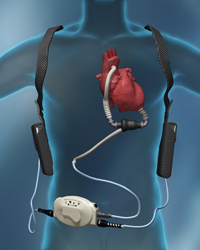
A teenage girl faced with sudden rapid heart deterioration, a man in the prime years of his life suffering from debilitating heart failure and a former NFL athlete crippled by end-stage heart failure were all successfully treated with a surgical approach pioneered by cardiac experts at University of California, San Diego School of Medicine.
The work, recently published in The Annals of Thoracic Surgery, demonstrated significant benefits of implanting a left ventricular assist device (LVAD) in the right atrium to provide better blood flow through the lungs, giving complete biventricular circulatory support and fully replacing the heart’s function.
An LVAD is a small mechanical pump traditionally placed inside the left ventricle — one of four chambers of the heart, located in the lower left of the organ –– to help restore blood flow throughout the body. Unlike an artificial heart, the LVAD doesn’t replace the heart, but it can mean the difference between life and death for a person waiting for a transplant or suffering from advanced heart failure.
“An LVAD relieves symptoms, such as being constantly tired or short of breath in patients with advanced heart disease,” said Victor Pretorius, lead author of the report and surgical director of cardiac transplant and mechanical circulatory support at UC San Diego Health. “The caveat is that the LVAD still depends on the right side of the patient’s heart to function optimally, and right ventricle failure is a common condition after an LVAD implantation, leaving some patients only partially treated. It is difficult to predict and increases mortality.”
Pretorius said biventricular support is required for up to 30 percent of LVAD recipients. Currently, no durable, long-term right ventricular assist device (RVAD) has received Food and Drug Administration approval, and placing an LVAD in the right ventricle, for which it was not designed, may jeopardize the device and heart function.
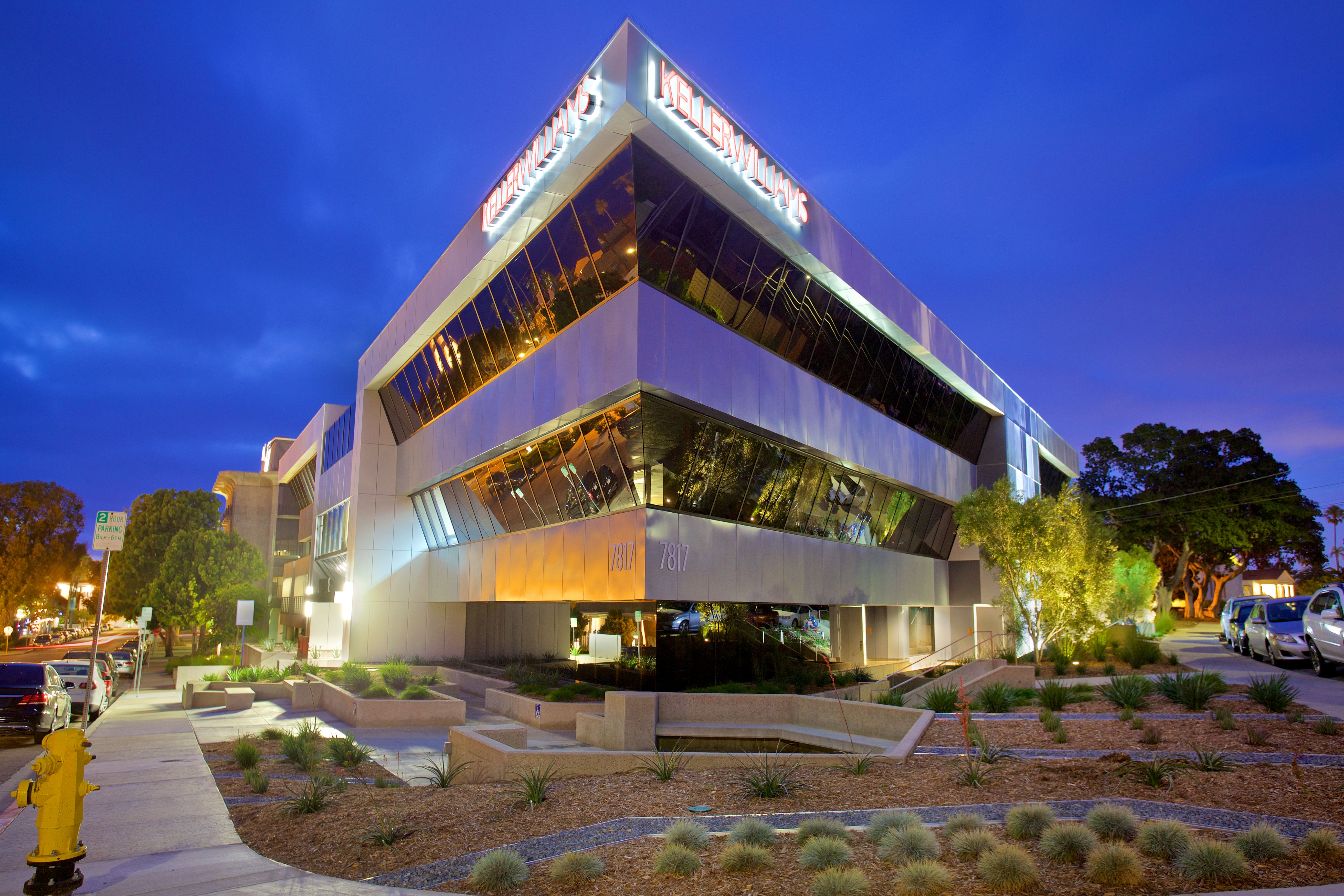
$1.5 Million Renovation Completed
Capstone Advisors and San Diego city officials on Friday will celebrate the completion of a $1.5 million renovation of The Ivanhoe Class A office building at 7817 Ivanhoe Ave. in La Jolla.
Since its purchase by Capstone in 2014, the building has undergone a transformation that includes a fully renovated lobby, rebuilt bathrooms, upgraded hallways, parking garage improvements, and exterior landscape improvements.
Solar Dreams Unravel in San Diego
Dreams that solar manufacturing might take root in San Diego have faded as French solar company Soitec shuttered its Rancho Bernardo assembly line and seeks to sell off related assets, including permits for two local solar farms that never came to fruition. Big orders in the United States never materialized — even at Soitec’s own development projects in southeastern San Diego County, where land-use approvals and litigation dragged on for years. San Diego Union-Tribune
City Council Approves Lease
For Behavioral Health Facility
City News Service
The City Council Tuesday unanimously approved a 25-year ground lease of a city-owned lot in Barrio Logan to the nonprofit Family Health Centers of San Diego.The organization, which operates several clinics for low-income San Diegans, plans to construct a two-story, 8,255-square-foot behavioral health facility on the property at the corner of National Avenue and Sampson Street.
According to city documents, the agency will build offices, meeting and consulting rooms on the upper floor, and 29 covered and uncovered parking spaces on the ground level, which patrons of the nearby Barrio Station youth facility will be allowed to use after 6 p.m.
The construction project will need separate city approval.
According to Family Health Centers, the organization serves more than 180,000 uninsured, low-income patients annually at its 18 locations, and via its mobile clinic, making it one of the 10 largest community clinic organizations in the United States.
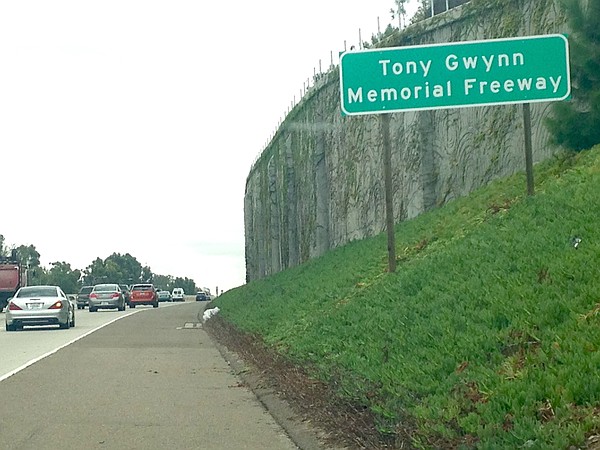
Freeway Stretch Named After
Padres Legend Tony Gwynn
City News Service
State and local officials Monday dedicated signs that designate a stretch of Interstate 15 in the North County as the Tony Gwynn Memorial Freeway in honor of the late Padres star.
The section of highway stretching around three miles between Scripps Poway Parkway and Camino Del Norte is now named in honor of the Hall of Fame right-fielder, who lived in nearby Poway for many years before his death from cancer in 2014.
Gwynn played for the Padres for 20 seasons and was inducted into the National Baseball Hall of Fame in 2007. After his playing career, he became the head coach at his alma mater, San Diego State University.
He was diagnosed in 2010 with cancer, which he blamed on chewing tobacco, a staple habit of baseball players. He stepped down as the Aztecs’ coach in midway through the 2014 season to concentrate on his health and died at the age of 54 in June of that year.
His family, including widow Alicia Gwynn, took part in the sign unveiling, along with Assembly Speaker Toni Atkins(D-San Diego), Assemblyman Brian Maienschein (R-San Diego), county Supervisor Ron Roberts and Caltrans District Director Laurie Berman.
Tony Gwynn Jr., who has enjoyed a long professional baseball career himself, told KPBS news partner 10News that he used that route along Interstate 15 to get to Petco Park and, before that, Qualcomm Stadium, ever since he started driving.
“It’s special for me, personally, from that standpoint — it’s another memory,” Gwynn said. “It brings back memories of me and my dad going to the baseball field and coming back home.”
The freeway segment is not the only roadway named for the former batting star. A street outside Petco Park is named Tony Gwynn Drive.
A statue of the fan favorite swinging a bat stands at Petco Park, and the baseball stadium at SDSU is named after the late coach. The city of Poway is also considering a plan to create a monument of some sort at Lake Poway Park, close to where he lived.
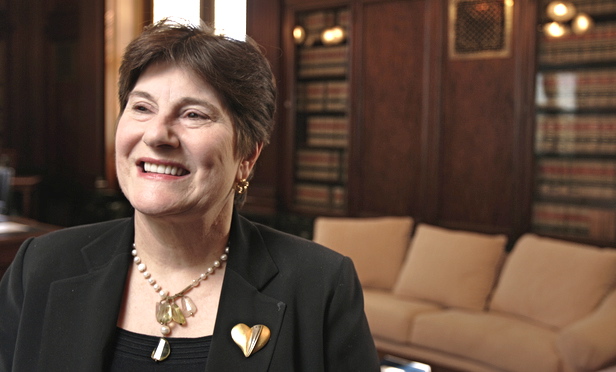
Law School Alma Mater Honors Ninth
Circuit Judge M. Margaret McKeown
Circuit Judge M. Margaret McKeown of the United States Court of Appeals for the Ninth Circuit, who is based in San Diego, has been presented with the Robert F. Drinan, S.J., Law Alumni Public Service Award by her alma mater — Georgetown University Law Center.
McKeown, 64, was presented with the award on Oct. 17 during the law center’s reunion weekend. The award honors a Georgetown Law graduate whose career has been dedicated to enhancing human dignity and advancing justice.
Judge McKeown earned her J.D. in 1975 from the Georgetown Law Center, where she edited the Journal of Law and Policy in International Business. She received her B.A. from the University of Wyoming in 1972, graduating Phi Beta Kappa, and studied at the University of Madrid before entering law school.
Nominated by President Clinton, Judge McKeown came onto the Ninth Circuit Court of Appeals in 1998 and has her chambers in San Diego. In addition to authoring more than 300 court opinions, she is an expert on judicial ethics and was appointed by Chief Justice John G. Roberts Jr. to chair the Codes of Conduct Committee of the Judicial Conference of the United States, the national governing body of the federal courts. She is the immediate past president of the Federal Judges Association and current chair of the American Bar Association Rule of Law Initiative Board.
Before coming onto the federal bench, Judge McKeown had been in private practice with the Seattle law firm of Perkins Coie from 1975 to 1998. She was the first woman to become a partner and serve on the firm’s executive committee and also founded its Washington, D.C. office and its intellectual property practice.
San Diego Team Combats Memory
Loss by Enhancing Brain Function

A new study, led by scientists at The Scripps Research Institute, the Veterans Affairs San Diego Healthcare System and UC San Diego School of Medicine shows that increasing a crucial cholesterol-binding membrane protein in nerve cells (neurons) within the brain can improve learning and memory in aged mice. They believe it might lead to treatments for Alzheimer’s and other disease in humans.
“This is a novel strategy for treating neurodegenerative diseases, and it underscores the importance of brain cholesterol,” said Chitra Mandyam, associate professor at TSRI and co-first author of the study with Jan M. Schilling of UC San Diego and the VA.
Senior author Brian Head, a research scientist with the VA and associate professor at UC San Diego, added, “By bringing back this protein, you’re actually bringing cholesterol back to the cell membrane, which is very important for forming new synaptic contacts.”
The study, published recently online ahead of print in the journal Biological Psychiatry, focuses on a specific membrane protein called caveolin-1 (Cav-1) and expands scientists’ understanding of neuroplasticity, the ability of neural pathways to grow in response to new stimuli.
Previous work by Head’s group at the VA and at UC San Diego had shown that raising Cav-1 levels supported healthy “rafts” of cholesterol involved in neuron growth and cell signaling; however, it wasn’t clear if this new growth actually improved brain function or memory.
To find out, the researchers delivered Cav-1 directly into a region of the brain known as the hippocampus in adult and “aged” mice. The hippocampus is a structure thought to participate in the formation of contextual memories — for example, if one remembers a past picnic when later visiting a park.
In addition to improved neuron growth, treated mice demonstrated better retrieval of contextual memories — they froze in place, an indication of fear, when placed in a location where they’d once received small electric shocks.
Mandyam and Head believe that this type of gene therapy may be a path toward treating age-related memory loss. The researchers are now testing this gene therapy in mouse models of Alzheimer’s disease and expanding it to possibly treat injuries such as spinal cord injury and traumatic brain injury.
Council Ratifies Mayor’s Appointments
To Convention Center Corp. Board
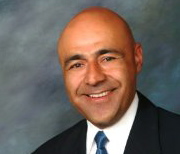
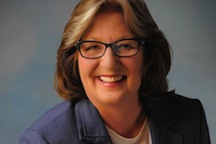
Mohsen Khaleghi, vice president of operations for Carlsbad-based Grand Pacific Resorts, and Xema Jacobson, president of Trilogy PR Group, have been appointed to the San Diego Convention Center Corp. board of directors. Stephen Cushman was reappointed to a second term on the board.
These were Mayor Kevin Faulconer’s appointments approved by the San Diego City Council.
Khaleghi was formerly the CEO of Exponential Hospitality Group Inc., a hospitality consulting group, and has over 30 years of experience in hospitality and management in San Diego. He is the past chair and president of the San Diego County Hotel & Motel Association. He was one of the charter board members of the San Diego Marketing District.
Jacobson, a native San Diegan and graduate of San Diego State University, has more than 30 years of government policy, legislative and labor relations experience. Prior to joining Trilogy Group, Jacobson managed a successful city council campaign and served as chief of staff for a member of the San Diego City Council. She has worked over 20 years with the building trades unions in San Diego County and served as the Business Manager of the San Diego County Building Trades Council.

